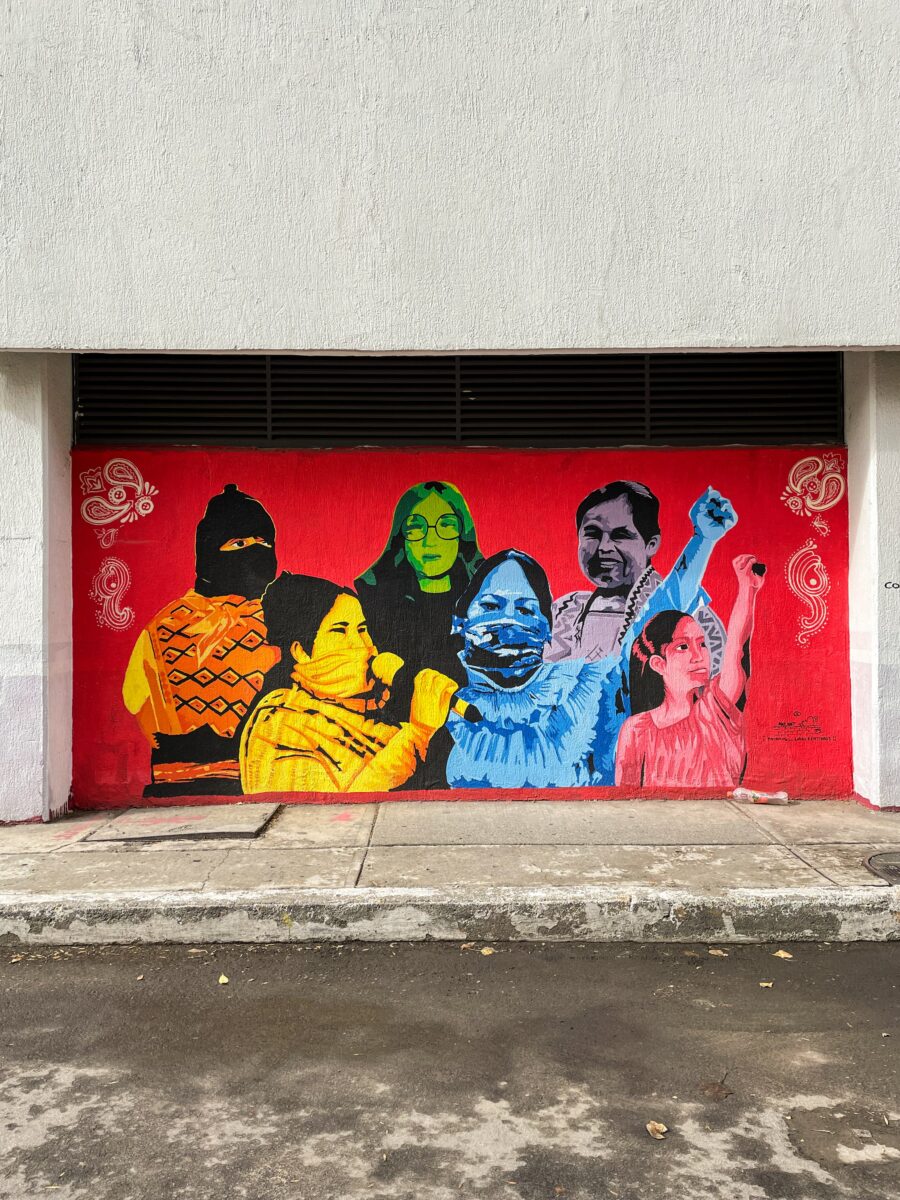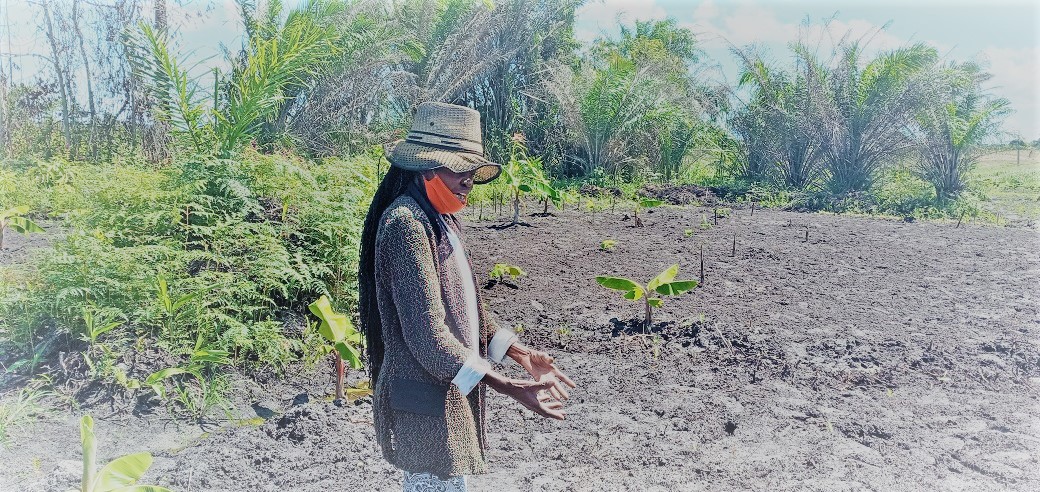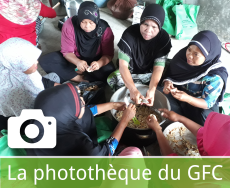« Être une femme, c’est résister à la lutte pour la conservation des forêts ».

Par : Valentina Figuera Martínez, Coordinatrice de la campagne Justice de genre et Forêts | 5 août 2022
« Que signifie être une femme dans mon territoire aujourd’hui ? » était l’une des premières questions posées par Johana Molina, du collectif VientoSur au Chili, lors de l’atelier sur le genre et les forêts destiné aux femmes leaders autochtones et aux communautés locales d’Amérique latine et des Caraïbes, amies du GFC. L’événement, qui s’est tenu en ligne le 25 juillet, a rassemblé plus de 20 femmes leaders paysannes et indigènes d’Amérique latine et des Caraïbes, dans le cadre de l’articulation et de l’échange d’expériences de la campagne « Justice de genre et forêts » de la Global Forest Coalition (GFC).
… continuer en anglais:
In response to the question, most of the participants mentioned resilience, hope and struggle to make women’s leadership in forest management and governance more widely recognized. « Being a woman means resistance to fight for forest conservation and against patriarchal-colonialist violence in our territories, » said Kiomy Nagumo of the Salvaginas Collective and gender expert from Coordinadora de la Mujer for GLA-Bolivia (the Green Livelihood Alliance).
The workshop was organized jointly by representatives of GFC member organizations in Latin America and included the participation of Ruth Alipaz Cuqui, a Bolivian Indigenous leader from the Coordinadora Nacional de Defensa de Territorios Indígenas Originarios Campesinos y Áreas Protegidas (Contiocap); Alicia Muñoz, director of the Association of Indigenous and Rural Women of Chile (Anamuri); Pérla Álvarez, coordinator of Via Campesina Paraguay; and Inés Franceschelli, director of Heñói Paraguay.
Ruth Alipaz Cuqui described the intensification of extractivism in her territory, including the invasion of Indigenous territories, the development of the IIRSA plan (a mega infrastructure project to integrate the Latin American region into international trade), mining, and the advance of agribusiness through the exploitation of oil palm for diesel production in the Indigenous village of San José de Uchupiamonas in the Bolivian Amazon.
« Progress disrupts the structures of community coexistence and exposes the existence of problems such as harassment of adolescents and lack of water, to mention just a few. It is essential to value our abilities as women to turn these problems into opportunities, » Alipaz emphasized.
Alicia Muñoz said that large estates, extractivism and forest fires are some of the main challenges in the rural and indigenous territories where Anamuri operates. However, she also highlighted the « innovative strategies that we are implementing to make ourselves heard, » such as the creation of « ethical tribunals in the face of extreme violence against women perpetrated by corporations ». This « effort for denunciation is evidence of our power of connection » in the face of the threat of deforestation, she said.
Perla Alvarez of Paraguay highlighted the articulation of women in the face of the enormous gender inequalities that have arisen during the pandemic, as well as challenges due to industrial soy and eucalyptus operations in their territories. « The collective work by women in the communities was essential to confront the inequality generated by the pandemic. The struggle to defend the soup kitchens is a feminist struggle because we understand life, we are directly linked to giving and providing life, » Alvarez said, adding that, « To politicize [things] is to be a woman. »
All of the participants, from rural and Indigenous organizations from Argentina, Chile, Colombia, Bolivia, Paraguay and Peru, presented the main problems in their territories, including extractivist forestry companies, the burden of care and domestic work, the normalization of gender violence and machismo, territorial conflicts, impacts on health and food sovereignty, extensive livestock production, agribusiness, mining, and social and political inequality.
As a researcher, » said Juana Téllez Riaño of the Foundation for Conservation and Sustainable Development in Colombia, « I have to face male violence and harassment for working in agroforestry areas considered mostly male. It is very hard, so we have to resist and expose these schemes » involving the masculinization of the territories.
The next workshop will be held with male Indigenous and peasant leaders to discuss the main regional challenges in forest conservation from a gender perspective to strengthen integration among GFC member organizations and the exchange of conceptual tools on gender justice and forest conservation.
Photo by Maria Fuentes, Mexico City










